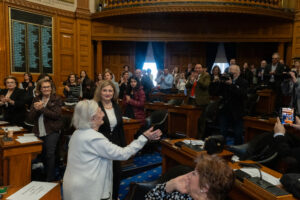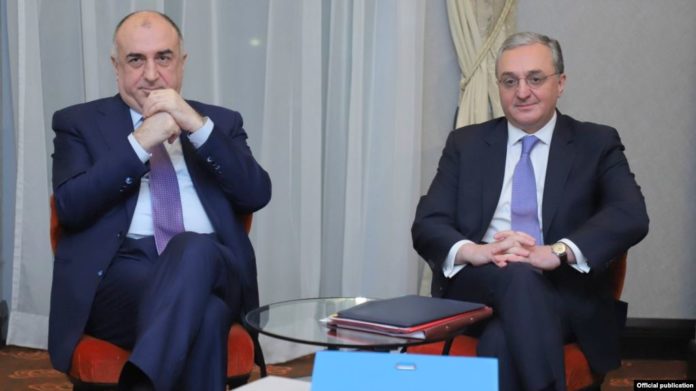BRATISLAVA, Slovakia (RFE/RL) — The foreign ministers of Armenia and Azerbaijan appear to have made no progress towards a resolution of the Nagorno-Karabakh during what the Azerbaijani side described as “tough” talks held in Slovakia’s capital Bratislava late on Wednesday, December 4.
According to international mediators, they only agreed to meet again early next year “to intensify negotiations on the core issues of a peaceful settlement.”
Armenia’s Zohrab Mnatsakanyan and Azerbaijan’s Elmar Mammadyarov, who met the sidelines of an annual ministerial conference of the Organization for Security and Cooperation in Europe (OSCE) member states, exposed lingering disagreements between the conflicting parties in their public statements made on Thursday.
“My meeting yesterday with my Armenian counterpart lasted for three and a half hours,” Mammadyarov said at the conference. “These were quite tough negotiations. Unfortunately, we still have unresolved problems.”
Mnatsakanyan did not comment on the outcome of the talks in his speech at the gathering. Instead, he charged that further progress in the peace process is hampered Azerbaijan’s “maximalist positions” and “preconditions.”
The Armenian minister pointed to an official Azerbaijani “memorandum” outlining Baku’s position on the Karabakh settlement which was circulated at the Bratislava conference.










